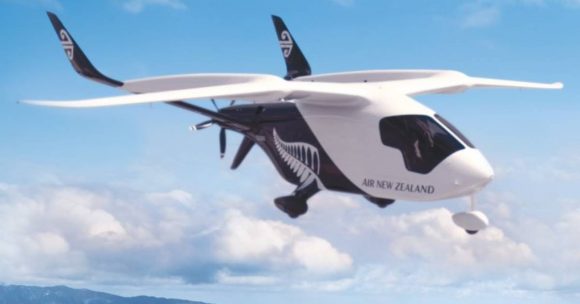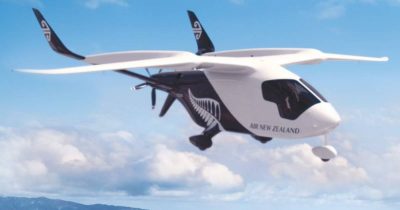Air New Zealand has selected Wellington and Marlborough airports as the ports for its first all-electric aircraft. The airline is partnering with NZ Post to operate a cargo-only service.
Wellington Airport will be the base of this next-generation aircraft. The airline’s chief sustainability officer, Kiri Hannifin says the purpose of this initiative is to set up the country’s aviation industry by introducing lower-emission aircraft.
Marlborough Airport will have charging infrastructure so the aircraft can recharge for the return journey.
Sustainable aviation
We see logistics being reshaped by the use of drone aircraft. This is evident in the world’s first drone cargo Dronamics blazing a trail in middle-mile logistics.
New Zealand is now heading getting in on the game for the use of lower-emission aircraft.
Wellington Airport CEO Matt Clarke says: “Partnering with Air New Zealand to host the commercial demonstrator is a giant leap for sustainable aviation, providing the basis for all airports to prepare for the next generation of aircraft technology. Our team put their heart and soul into the hosting bid and that same energy will now be focussed on getting this service off the ground.”
Marlborough Airport CEO Dean Heiford highlights why decarbonization is crucial. “Decarbonising aviation is of global importance, and in New Zealand maintaining regional connectivity through this transition is of national importance,” says Heiford.
Countries using full-electric planes
In 2011, The Guardian reported on the world’s first fully electric aircraft flight – taking to the air in Vancouver, Canada for a flying time of 15 minutes. The BBC also reported that Norway promised all of the country’s short-haul flights would be on electric aircraft by 2040.
The push towards electric aircraft is being driven by environmental concerns, such as reducing greenhouse gas emissions and noise pollution. Countries can also have an economic benefit – lower fuel costs and maintenance expenses compared to traditional jet fuel engines.
The global aviation industry is expected to achieve excellent growth. Precedence Research reports that a factor in the market’s growth is a number of technical developments, such as the combination of big data and artificial intelligence (AI) assisting to boost productivity, security, and conducting mechanical analysis.
Here’s a scenario: An airline has been conducting traditional airline flights for over 30 years. It decides to bring an all-electric aircraft into its fleet. The financial offers are astounded by the results in switching to an all-electric service.
One of the most significant savings the airline sees is reduced fuel expenses. Electricity is generally cheaper than jet fuel. Maintenance costs have also been reduced. Electric aircraft engines have fewer moving parts than traditional jet engines. This leads to reduced wear and tear and potentially lower maintenance costs.
Photo Credit: Wellington Airport
About the author
Sharl is a qualified journalist. He has over 10 years’ experience in the media industry, including positions as an editor of a magazine and Business Editor of a daily newspaper. Sharl also has experience in logistics specifically operations, where he worked with global food aid organisations distributing food into Africa. Sharl enjoys writing business stories and human interest pieces.











